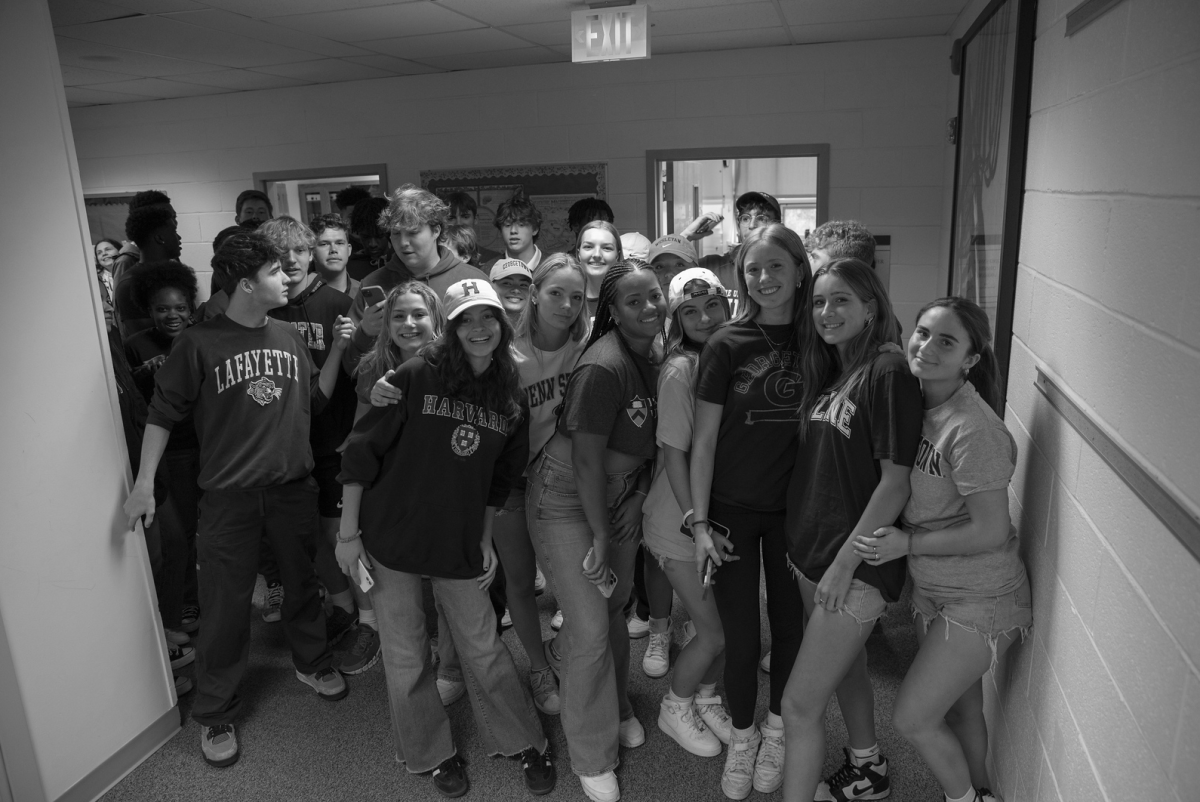The first semester of senior year is arguably the busiest and most high-stress period in students’ high school careers. College application deadlines typically range from mid-October through early January, meaning the majority of seniors are working on preparing their application materials and supplements throughout the entire semester. There is a misconception that this added stress is offset by the reduced importance of senior-year grades and the completion of SAT and ACT standardized testing during the previous school year. In reality, many seniors are still preparing for their final ACT or SATs early in the year, while the need to maintain strong grades remains as pressing as ever because almost all universities require mid-year grade reports, which can influence regular decision results.
While the recent Nov. 1 deadline marks the first milestone in the process for many students, the work is far from over, as the vast majority of regular deadlines are yet to come. Under these combined pressures, seniors need to be able to dedicate as much additional time to their applications as possible. Sidwell’s current schedule does not provide sufficient support to seniors during the application process, particularly regarding college workdays.
This September, Sidwell’s College Counseling Office sent an email to its seniors highlighting the four college workdays for the year: Oct. 6, Oct. 9, Oct. 20 and Nov. 10. These days are intended to alleviate the heavy workload on seniors by providing designated out-of-school time to make progress on college applications. However, none of these dates were allocated specifically for this purpose but rather were already school-wide days off. In order, these ‘workdays’ correspond to a faculty professional development day, fall break, a faculty report writing day and 9th-grade parent conferences. While these days are still useful opportunities to work on college materials, calling them “senior workdays” is a misnomer.
Scheduling workdays on dates like fall break pressures seniors to focus solely on college applications on days that should be open for them to spend with friends and family, or simply relaxing, during an otherwise overwhelming time of year. The workdays are ostensibly aimed at recognizing the increased burden on seniors relative to other grades during this semester and, accordingly, should be distinct from pre-planned days off school.
Furthermore, homework and assessments are allowed to be assigned over senior workdays, meaning seniors still have to study and work on their regular assignments on these days, diminishing the time available for college-related work. Senior workdays should therefore always be no-homework days, and teachers should be encouraged not to schedule tests and quizzes for the following school day. Similarly, if it proves logistically challenging to dedicate full days off school to seniors alone, simply providing additional days throughout the semester without homework or assessments would make a significant difference in seniors’ workloads and corresponding stress levels. Furthermore, the distribution of workdays could be improved, as three out of four of them occur in October, meaning they are primarily helpful for Nov. 1 deadlines, but do little for the much larger strain of regular applications.
In conclusion, Sidwell should create more distinct senior workdays and better distribute them throughout the first semester, or should at the very least implement periodic homework- and assessment-free days for seniors. The college application process is incredibly demanding, especially given the massive amount of supplementary writing required and how highly competitive university admissions have become. Sidwell is in the privileged position of having the resources to tailor its scheduling to its students’ needs. Its seniors should thus be given added consideration, time and support at what is for many the most high-stress point of their high school experience.











































